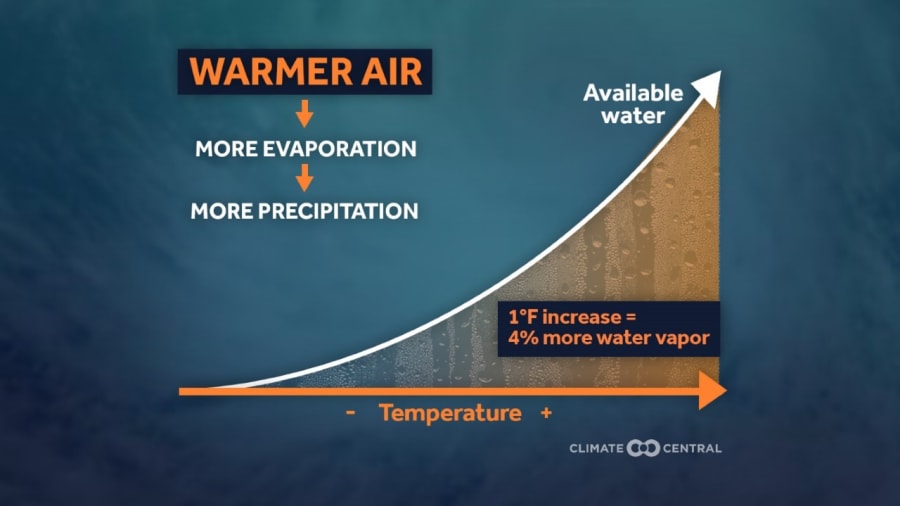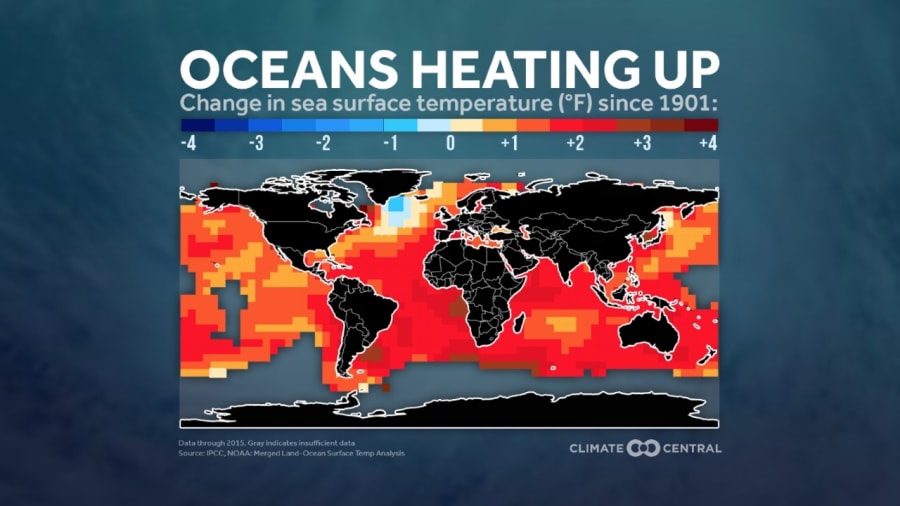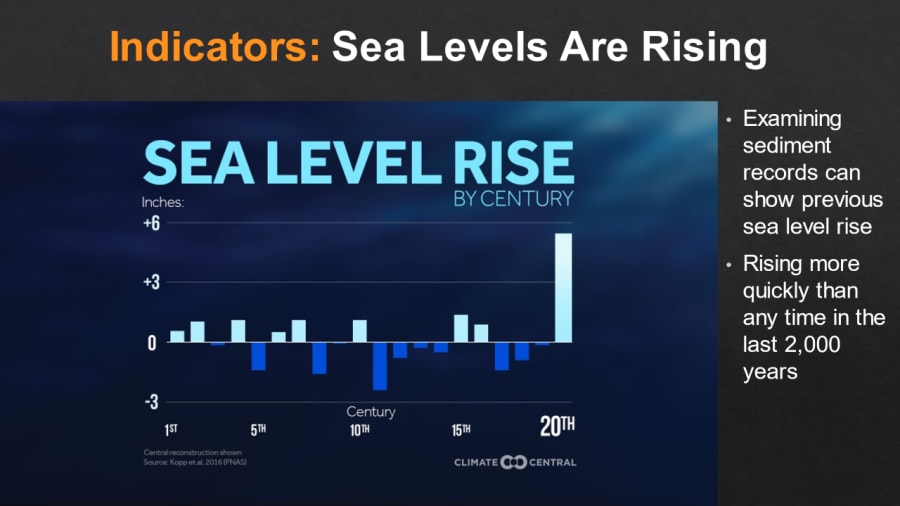In the aftermath of Hurricane Ida, lots of people are asking: did climate change cause this?
I want to make it perfectly clear right now: climate change does not cause hurricanes. There have been lots of hurricanes in the past, we have hurricanes today, and we will have hurricanes in the future.
Recommended Videos
The question you want to ask is: Is global warming changing hurricanes? So let’s dive into that.
Warmer planet means more water
First of all, as the planet warms, more ocean water evaporates into the atmosphere (which has been scientifically documented). In fact, each degree (Fahrenheit) increase in Earth’s temperature results in a 4% increase in water vapor in the air.
Since this atmospheric humidity is what storms turn into precipitation, it’s pretty obvious that adding more moisture to the atmosphere “juices” storm systems, including hurricanes, and causes more extreme rainfall events (which has been scientifically documented).

As you’ve now undoubtedly seen, Ida’s remnant low pressure area tracked north, and then northeast toward New England, with extreme rain amounts falling in just a few hours. In fact, for the first time ever, the New York City National Weather Service office issued a Flash Flood Emergency for New York City. And then there’s Hurricane Harvey, which dropped unimaginable amounts of rain onto parts of Texas in 2017.
Climate scientists have now determined that global warming increased Harvey’s rainfall by fifteen percent.
Warmer water fuels hurricanes
The planetary warming is also warming our oceans and, since warm ocean waters are the fuel that hurricanes feed upon, tropical systems that form in otherwise favorable conditions become stronger -- and there has also been a documented increase in rapid intensification in some of these storms.
I was tracking Hurricane Ida on the air last weekend here on Local 4, and when I showed the Gulf of Mexico surface temperatures, I was astounded: Ida was going to move over 88-degree waters. It’s no wonder that this storm hit as a high-end Category 4 storm.

Finally, as you probably know, storm surge – the push of ocean water inland on a hurricane’s right flank – is incredibly destructive. And storm surges are getting worse because sea level is rising due to climate change.
Think about this: If a storm surge starts with a higher sea level, then that creates a higher surge than was experienced in the past, with coastal inundation going farther inland than before. As you can see on the chart below, sea levels have fluctuated through the centuries, but nothing like the increase we’ve seen over the past century.

Seal levels rising
And by the way, if you are wondering why sea levels are rising, about two-thirds of it is simply from glacial ice melting, with that melt water running off into the oceans. So what’s the other third?
It’s from something called thermal expansion. You see, water has an interesting property: It expands when it warms. So, the very fact that the oceans are warming is causing higher sea levels.
Bottom line
The bottom line is that climate change is not causing hurricanes. However, we have put the atmosphere on steroids, and more impactful hurricanes that form in otherwise favorable conditions look to be the norm moving forward.
(Find more of Paul’s climate change coverage here)



